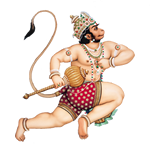Sanskrit
Displaying 1 - 5 of 5 » page 1 of 1
Journal Post
Whenever you practice or read about Yoga, you'll inevitably run across Sanskrit. Sanskrit is the classical language of India, much like Latin is the classical language of medieval Europe. Nowadays Sanskrit is pretty much a dead language, and though it's still one of a dozen or so official languages of India, even in its heyday Sanskrit was spoken only by a relatively small circle of academics and priests.
The first attempt at an English translation of Patanjali's Yoga Sutra ("Threads of Yoga") was made by James Robert Ballantyne (1813-1864), a Scottish Orientalist and linguist. From 1846 to 1861 he was the principal of the prestigious Sanskrit College in Benares, established in 1791 by the British East India Company. Ballantyne, an adherent of a movement known as the Scottish Enlightenment (which also claimed as members poet Robert Burns, novelist Walter Scott, philosopher David Hume, and inventor James Watt), was also a prolific translator and writer.
Like many Sanskrit words in the Yoga lexicon, the word guru has both a literal and symbolic meaning. Literally it means "heavy, weighty; heavy in the stomach (as food), difficult to digest; excessive, difficult, hard; important, serious, momentous; valuable, highly prized; venerable, respectable." The guru is the venerable "weighty one," heavy with wisdom, that's both highly prized but at times difficult to digest, often because teaching seems to contradict everything we hold true, or because we're told things about ourselves we don't especially want to hear.
Yoga has an almost addictive quality to it. If you start doing yoga, it starts doing you too. The search for knowledge, wisdom and truth morph into numerous shapes and forms along the inner journey. When you enter the world of yoga sometimes you'll even find a whole Indian performance awaiting you: harmonium, chanting, flowers, pujas, small women demonstrating yoga postures, deities blessing you, henna painting and vegetarians--it's a Bollywood show that draws you in.
Join Manorama, Director of the School of Sanskrit Studies in New York City, for a very special ten-hour workshop on the Yoga Sutra.
Students will delve into the unique relationship that exists between breath and sound, and between energy and consciousness. Combining academic knowledge and practical experience, this course offers a new lens through which to view the vast and enlightening subject of the Yoga Sutra.
Students will delve into the unique relationship that exists between breath and sound, and between energy and consciousness. Combining academic knowledge and practical experience, this course offers a new lens through which to view the vast and enlightening subject of the Yoga Sutra.
Are you a Yoga Teacher?
Are you a Yoga Student?
Do you Own a Yoga Studio?
